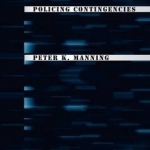Policing Contingencies
BookThis item doesn’t have any media yet
2003 | Philosophy, Psychology & Social Sciences
Despite constant calls for reform, policing in the United States and Britain has changed little over the past 30 years. In "Policing Contingencies", Peter K. Manning draws on decades of fieldwork to investigate how law enforcement works on the ground and in the symbolic realm and why most efforts to reform the way police work have failed so far. Manning begins by developing a model of policing as drama - a way of communicating various messages to the public in an effort to enforce moral boundaries. Unexpected outcomes, or contingencies, continually rewrite the plot of this drama, requiring officers to adjust accordingly. New information technologies, media scrutiny and representations, and community policing also play important roles, and Manning studies these influences in detail. He concludes that their impact has been quite limited, because the basic structure of policing - officer assessments based on encounters during routine patrols - has remained unchanged. For policing to really change, Manning argues, its focus will need to shift to prevention.
Related Items:
| Published by | The University of Chicago Press |
| Edition | Unknown |
| ISBN | 9780226503516 |
| Language | N/A |
Images And Data Courtesy Of: The University of Chicago Press.
This content (including text, images, videos and other media) is published and used in accordance
with Fair Use.
